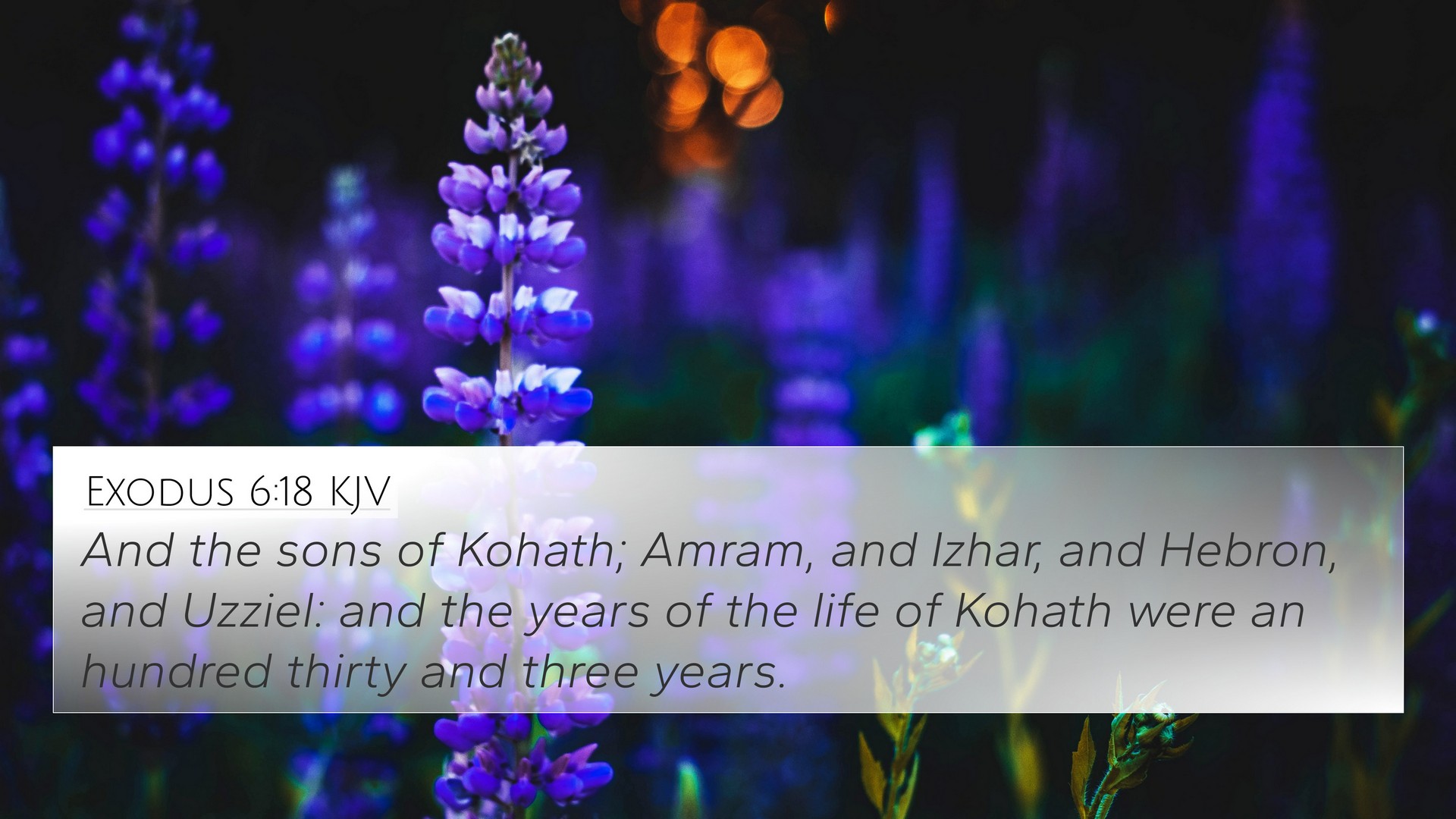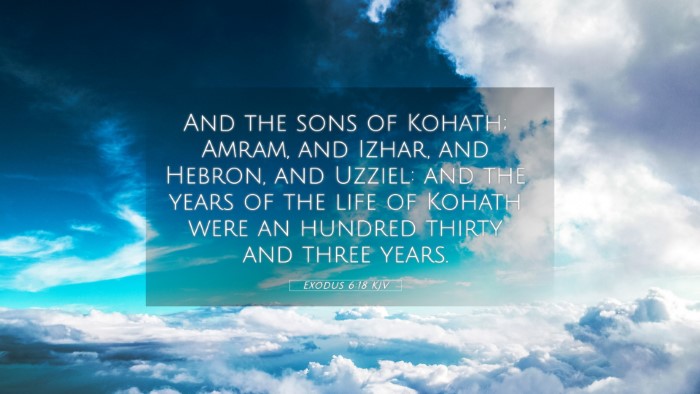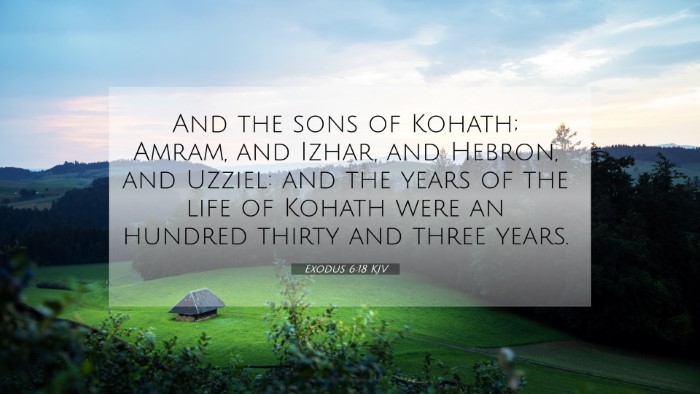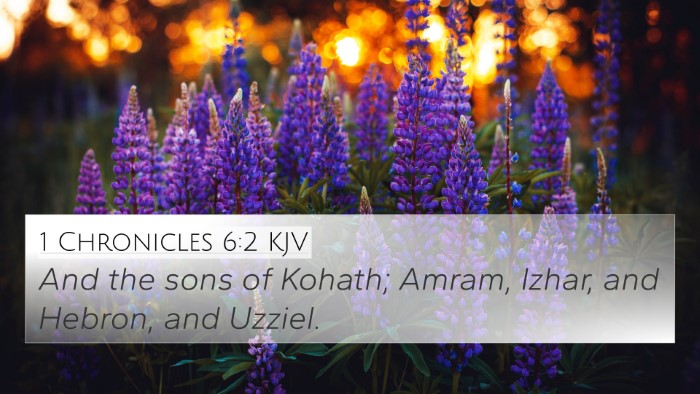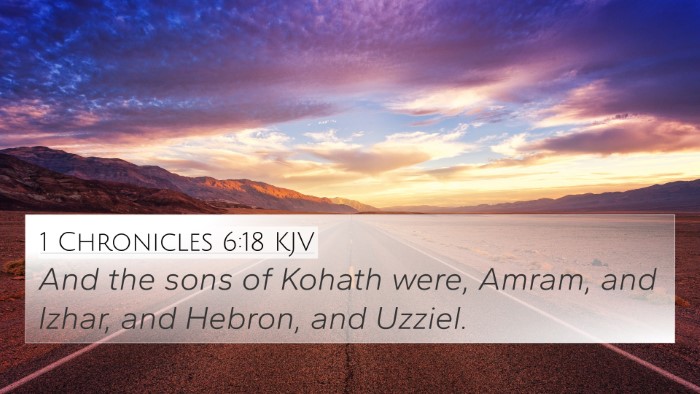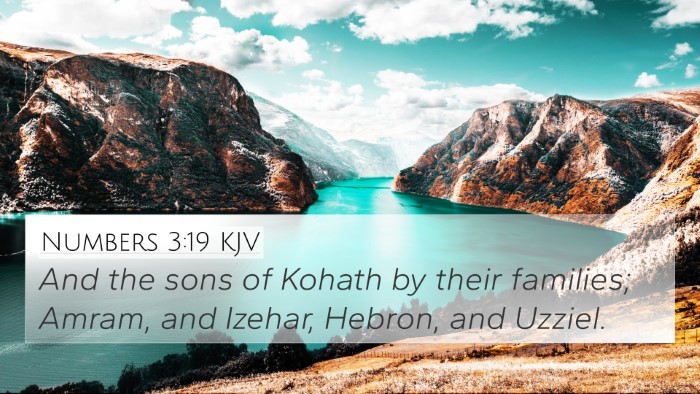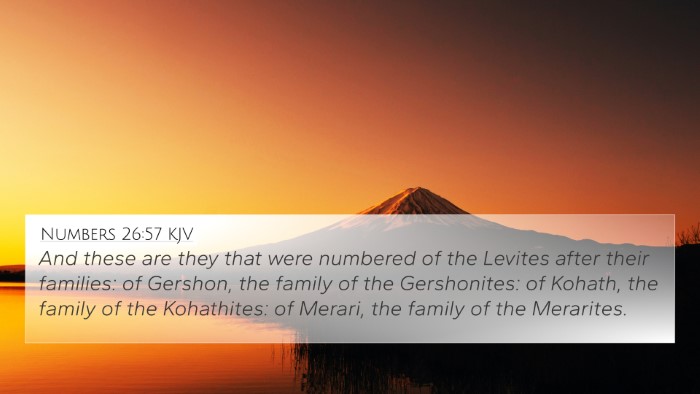Exodus 6:18 - Verse Meaning and Commentary
Bible Verse: "The sons of Kohath were Amram, Izhar, Hebron, and Uzziel; and the years of the life of Kohath were one hundred thirty-three years." (Exodus 6:18, KJV)
This verse is part of a genealogical record that connects the descendants of Levi, specifically focusing on the family of Kohath. This lineage is significant in understanding the structure of the priestly tribe of Levi and the responsibilities assigned to its various branches.
Insights from Public Domain Commentaries
-
Matthew Henry's Commentary:
Henry highlights the importance of genealogies in the Bible, serving to establish the legitimacy of the priestly lines. He notes that the children of Kohath were responsible for transporting the most sacred items of the Tabernacle. This verse serves as an introduction to the Kohathites and their vital role in the worship and rituals of Israel.
-
Albert Barnes' Notes:
Barnes emphasizes the significance of Kohath's descendants, particularly that they are among those chosen to serve in the Sanctuary. He points out the mixture of longevity and divine election, encapsulating God's providential plan in selecting specific families for sacred duties.
-
Adam Clarke's Commentary:
Clarke draws attention to the ages of Levi's descendants, noting that Kohath lived a significant life and was instrumental in the continuation of Israel’s religious practices. He notes that the mention of Kohath’s sons sets the stage for later descriptions of their duties within the tabernacle.
Thematic Connections
The genealogy in Exodus 6:18 serves to remind believers of the continuity of God's covenant people. Each member of Kohath's lineage plays a role in the unfolding narrative of Israel's worship. Moreover, understanding this lineage leads to a greater appreciation of how God works through generations.
Bible Cross References
- Exodus 6:16-21: These verses further elaborate on the descendants of Levi, providing context to the lineage of Kohath.
- Numbers 3:17-31: Detailed roles and responsibilities of the Kohathites in the transport of Tabernacle furnishings.
- 1 Chronicles 6:1-15: Reiterates the genealogy of Kohath, linking it to the Levitical priestly line.
- Psalm 99:6: References Moses and Aaron, descendants of Kohath who played pivotal roles in the Israelite faith.
- Hebrews 7:14: Connects the Levitical priesthood to Jesus, showing how the Old Testament priesthood foreshadows the New Covenant.
- Acts 7:43: A New Testament commentary on the worship practices of Israel, linking back to the heritage established through Kohath's lineage.
- Matthew 1:12: Genealogies in the New Testament, bridging the connection between the Old Covenant and the New Covenant through lineage.
Importance of Cross-Referencing Biblical Texts
Cross-referencing Biblical texts is crucial for understanding the full narrative of scripture. It allows the reader to see:
- Historical Context: Understanding the background of the Israelites helps to interpret their practices and beliefs.
- Thematic Resonance: How themes such as sacrifice, priesthood, and divine selection resonate throughout both the Old and New Testaments.
- Divine Consistency: Recognizing God's faithfulness in preserving His covenant people across generations enhances faith.
Conclusion
Exodus 6:18 is more than a simple genealogy; it is a vital part of the narrative that reveals God’s design in establishing a holy priesthood through the line of Levi. Utilizing tools for Bible cross-referencing can deepen one’s understanding of this lineage, its significance, and its implications for both historical and modern faith contexts.
By exploring the connections between Bible verses, we can uncover a richer, more complex understanding of scriptural teachings and how they inform our faith today. Whether through detailed studies or casual readings, recognizing Bible verse parallels adds depth and clarity to our spiritual journey.
